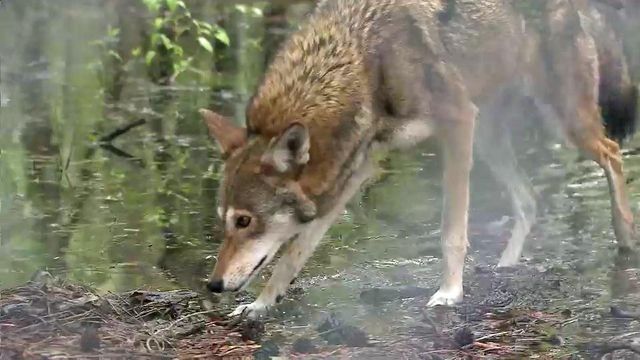State red wolf protection program under review
Advocates for a nearly 30 year-old North Carolina red wolf experiment met with upset land owners Wednesday for the first of two public focus group sessions that are likely to help decide the wolves' future in the state.
Posted — UpdatedOne-by-one, people stepped through the doors of Mattamuskeet High School Cafeteria in Swan Quarter of Hyde County. Some were there to show support for the Red Wolf Recovery Program; others said they wished the wolves would go away.
Landowners in the five-county area where the wolves were first released decades ago say the red wolves have bred with coyotes, and most have wandered off the federal lands, killing wildlife on private farms.
The Red Wolf Recovery Program originally released four breeding pairs in Dare County in 1987.
“Who wants to see the red wolf gone, by show of hands?” said Roger Seale. “I’m against them because they’ve eat up all of the wildlife.”
Advocates of the program say it is the species’ last hope.
“Red wolves have reclaimed a small part of their birthright in North Carolina,” said Janet Hoben.
The Wildlife Management Institute is reviewing the impact of the red wolf in eastern North Carolina. A report is expected next month.
Leopoldo Miranda, assistant regional director of ecological services with the U.S. Fish and Wildlife Service, said the review would determine next steps for the program.
While the wolf proves a divisive issue in the community, both sides seem to agree that the evaluation is a bit dubious.
"How do we know you'll be neutral in this?" one participant asked.
Jeff Mittelstadt, a documentary producer specializing in human/wildlife conflicts, hopes the study reveals some common ground.
"When you concentrate on that common ground, you have a better chance of finding solutions," he said.
• Credits
Copyright 2024 by Capitol Broadcasting Company. All rights reserved. This material may not be published, broadcast, rewritten or redistributed.





